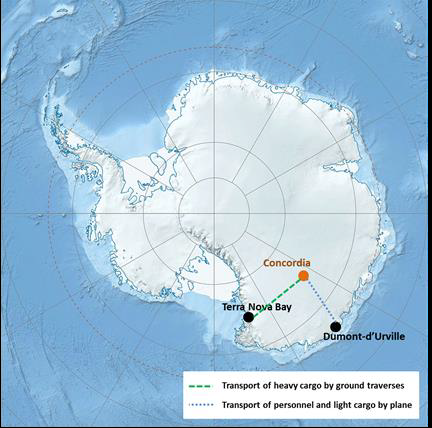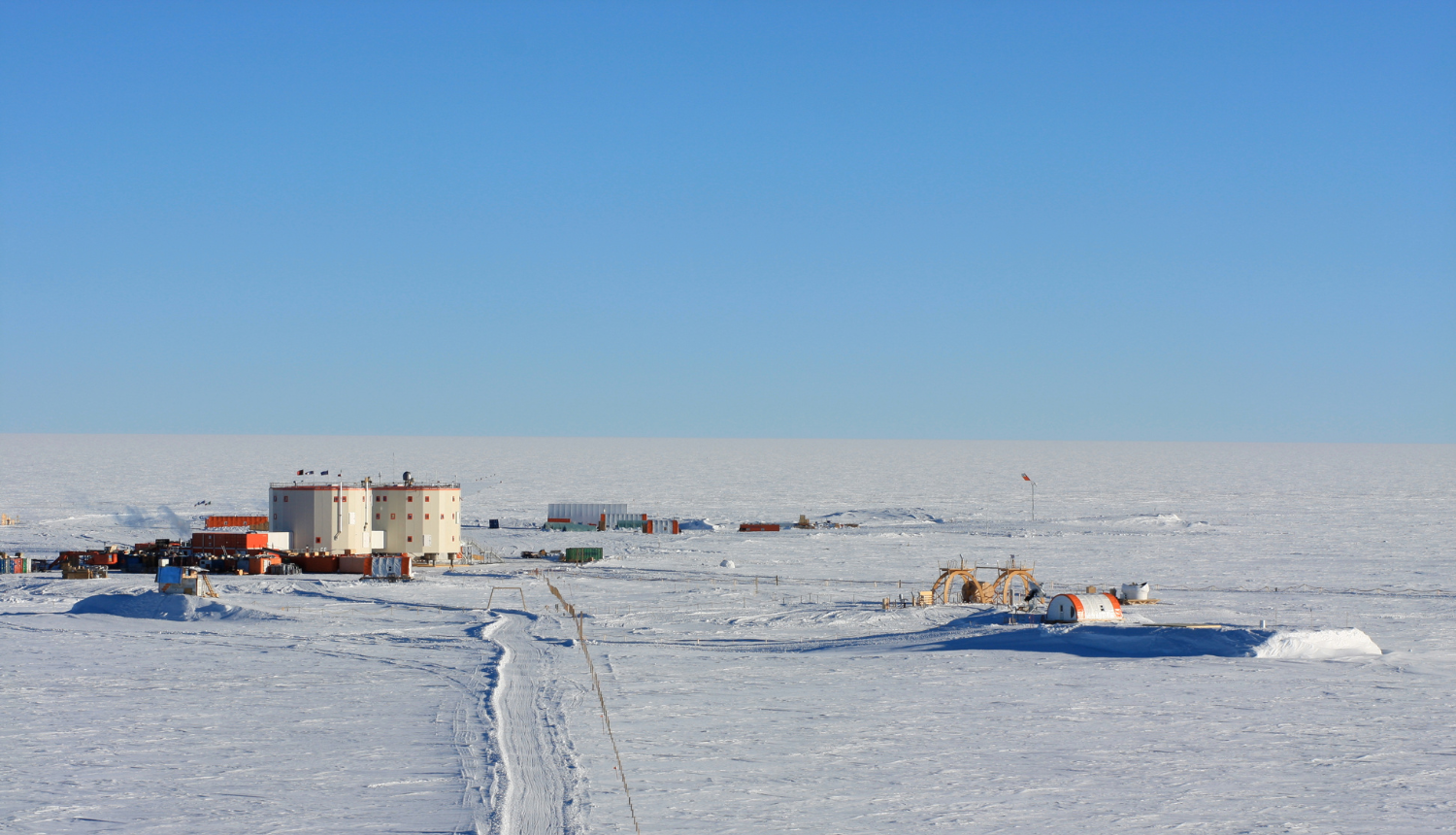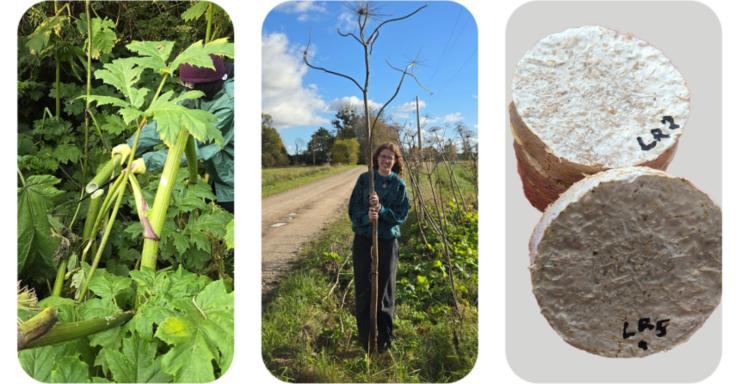Until January 31, 2025, applications are open for the European Space Agency (ESA) research physician position at the Concordia Polar Station in Antarctica. This unique opportunity is also available to Latvian researchers, as Latvia is an associate member state of ESA.
Since 2001, European Space Agency (ESA) has been cooperating with the French Polar Institute (Institut Paul Emile Victor, IPEV) and the Italian Antarctic Programme (Programma Nazionale di Ricerche in Antartide, PNRA) on biomedical research activities carried out at the Antarctic research station "Concordia". In view of ESA’s future plans for human long-duration exploration missions, Concordia station acts as a powerful analogue for these future missions, as it replicates many of the expected conditions of a Lunar or Martian base. Such conditions include hypoxia, isolation, confinement, high levels of autonomy and social monotony, limited resources, restricted access by outside help in case of emergencies, and a hostile external environment.
In order to support the implementation of scientific activities in this area, ESA/IPEV/PNRA are looking for a medical doctor to join the next Concordia winterover crew (leaving for Antarctica in the October/November 2025 timeframe). Deadline for applications: 31 January, 2025.
Candidate profile:
- Medical degree and work experience
- Strong interest in medical and psychosocial research
- Laboratory /research experience
- Very good English language skills are essential; French or Italian language skills are desirable
- Excellent health
- No addictions
- Aptitude to life in small community in a context of isolation.
- Participate can researchers from Latvia, and also from other ESA Member States or Associated Member States.
Additionally, as a benefit:
- Experience in wilderness/extreme environments medicine and other outdoor experience
- A space-related background
Tasks will include (non-exhaustive list):
- Training for the implementation of the selected experiments before departure at the respective home laboratories of selected experimenters (travel across Europe is needed, usually training is conducted over the summer period).
- Participation in the pre-departure meeting (see below)
- Participation and supporting in data collection at the pre- and post-departure baseline data collection meetings
- Implementation of selected experiments (mainly in the areas of psychology, physiology and microbiology) at Concordia.
- Routine reporting on the status of the implementation.
- Sampling and analysis of recycled water.
- Participation in the normal shared tasks of the station (housekeeping).
- After the stay, providing a debriefing report (“lessons learned”).
ESA would assume the selected candidate to also participate as a test subject in the ESA biomedical experiments. However, this participation is voluntary and can be stopped at any time without consequences. Informed consent will be collected from participating crew members prior to departure. The selected candidate will not be responsible for the operational medical provision for the crew but can support the Crew Medical Doctor if the need arises.
The position will be implemented via a contract with the French Polar Institute, IPEV. The final salary amount will depend on the exact contract duration (approximately 18 months in total). It shall be noted that Concordia-specific factors such as transport, special clothing, communication facilities etc. will be provided by the Concordia partners.

Challenges
The challenges for a winterover crew at Concordia are manifold. They include but are not limited to:
- Prolonged isolation and confinement (typical duration of a stay in the station is 12- 13 months).
- A fascinating, but hostile natural environment (extreme low outside-temperatures, chronic hypobaric hypoxia).
- Autonomy: the crew needs to be autonomous and self-dependent especially from February to November, where no access to and from the station is possible, even in emergencies.
- Life in a small multicultural setting (typically 12-14 crew members, with French and Italian as the main spoken languages and a variety of behavioural customs).
- Limited mobility outside of the station buildings, especially during winter.
- Night/Daylight variations (constant light in summer, constant darkness in winter).
- Managing life with limited resources and in consideration of the environment.
Based on the submitted forms, maximum 8 candidates will be shortlisted and invited for a virtual interview. Out of these, a few candidates will be invited to undergo a thorough medical examination, a psychological assessment, and an interview in Paris around the March/April 2025 timeframe.
You will find more information about the submission process and the submission form in the ESA page.
About Concordia station
Concordia station is a permanent international research facility at high altitude on the Antarctic ice cap. The station was built by IPEV and PNRA S.C.r.l. The station has been permanently crewed since November 2004. The objective of Concordia station is to operate as an international research facility to conduct scientific programmes. The main fields of research at Concordia are glaciology, atmospheric sciences, astronomy and astrophysics, Earth sciences, technology, human biology and medicine. The area in which Concordia station is located is considered to be one of the most hostile places on Earth. Some characteristics of the extreme environment include:
- An altitude of 3200m, equal to an altitude of almost 4000m at the equator. As such, air pressure is 645hPa and results in chronic hypobaric hypoxic stress.
- The time from mid-February to mid-November is considered the winter period with the summer-period lasting the rest of the year. Access to the station is only possible during the Antarctic summer season.
- Overall mean temperature is -51°C, with a mean value of -30 °C during summer and -60 °C during winter (the lowest recorded temperature in Antarctica was recently found to be -97.7°C).
Further details on Concordia Station can be found on ESA Concordia page.
Photo credit: ESA/IPEV/PNRA - A. Salam.


